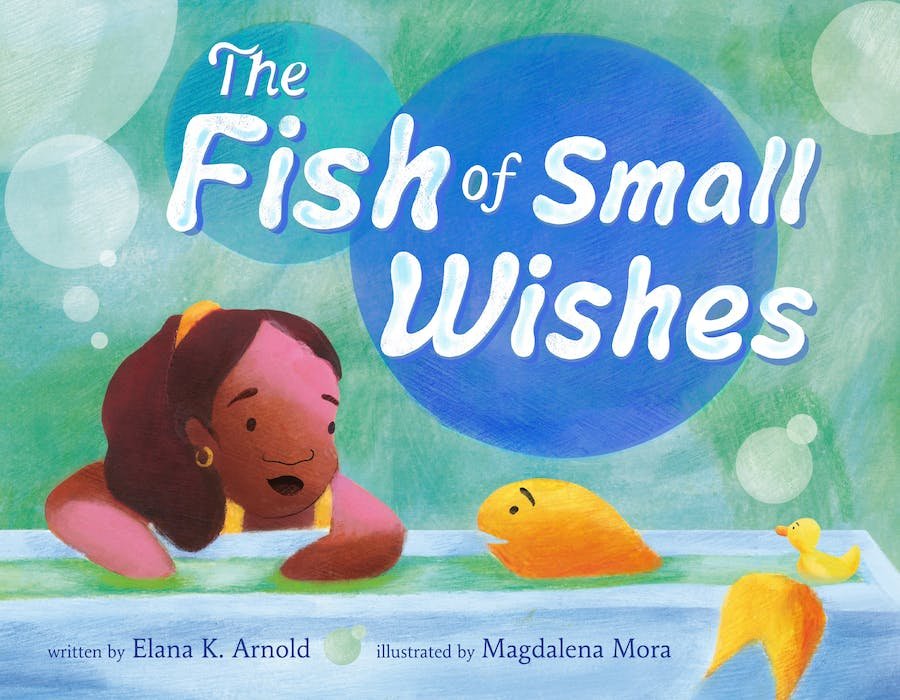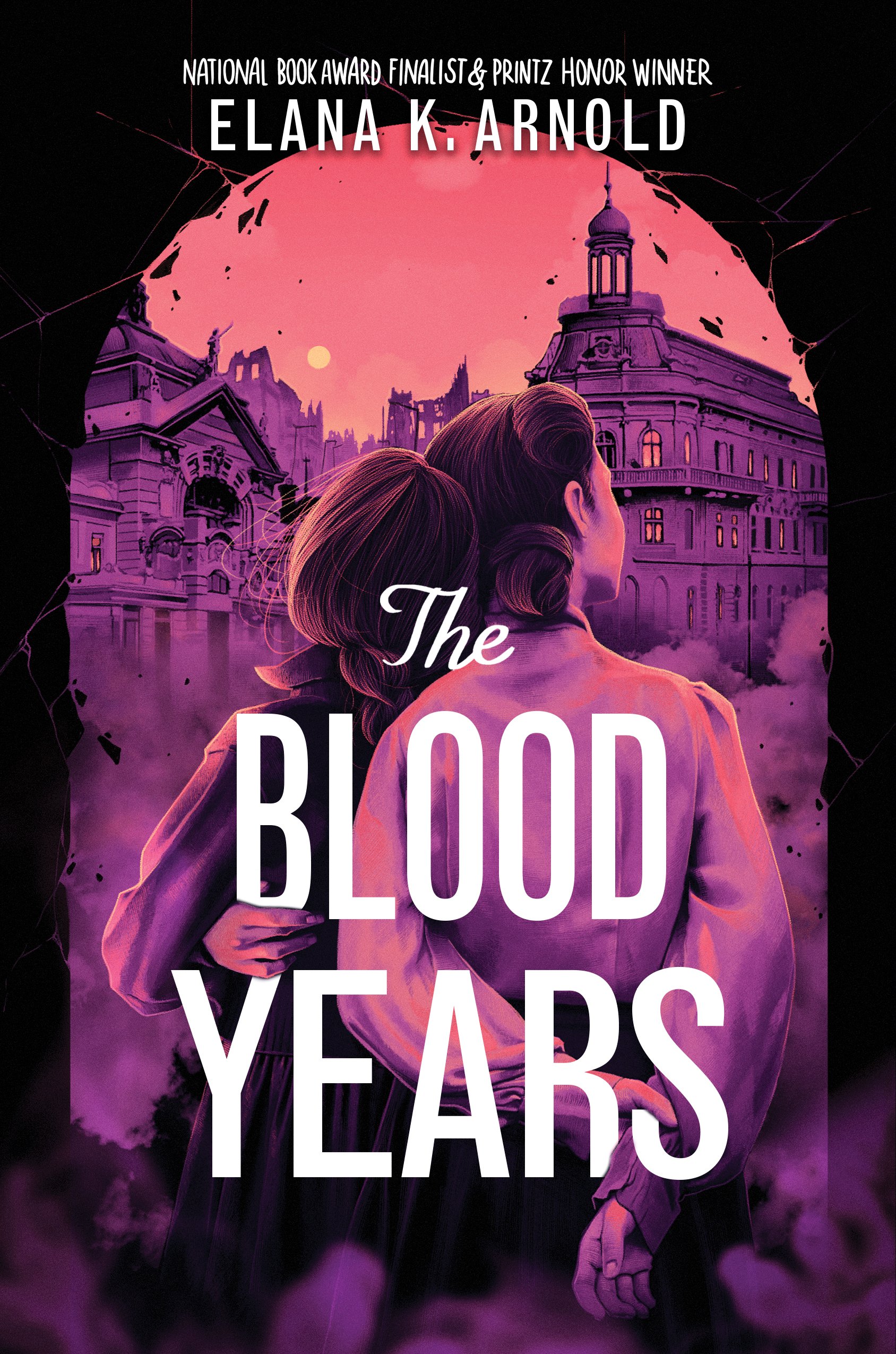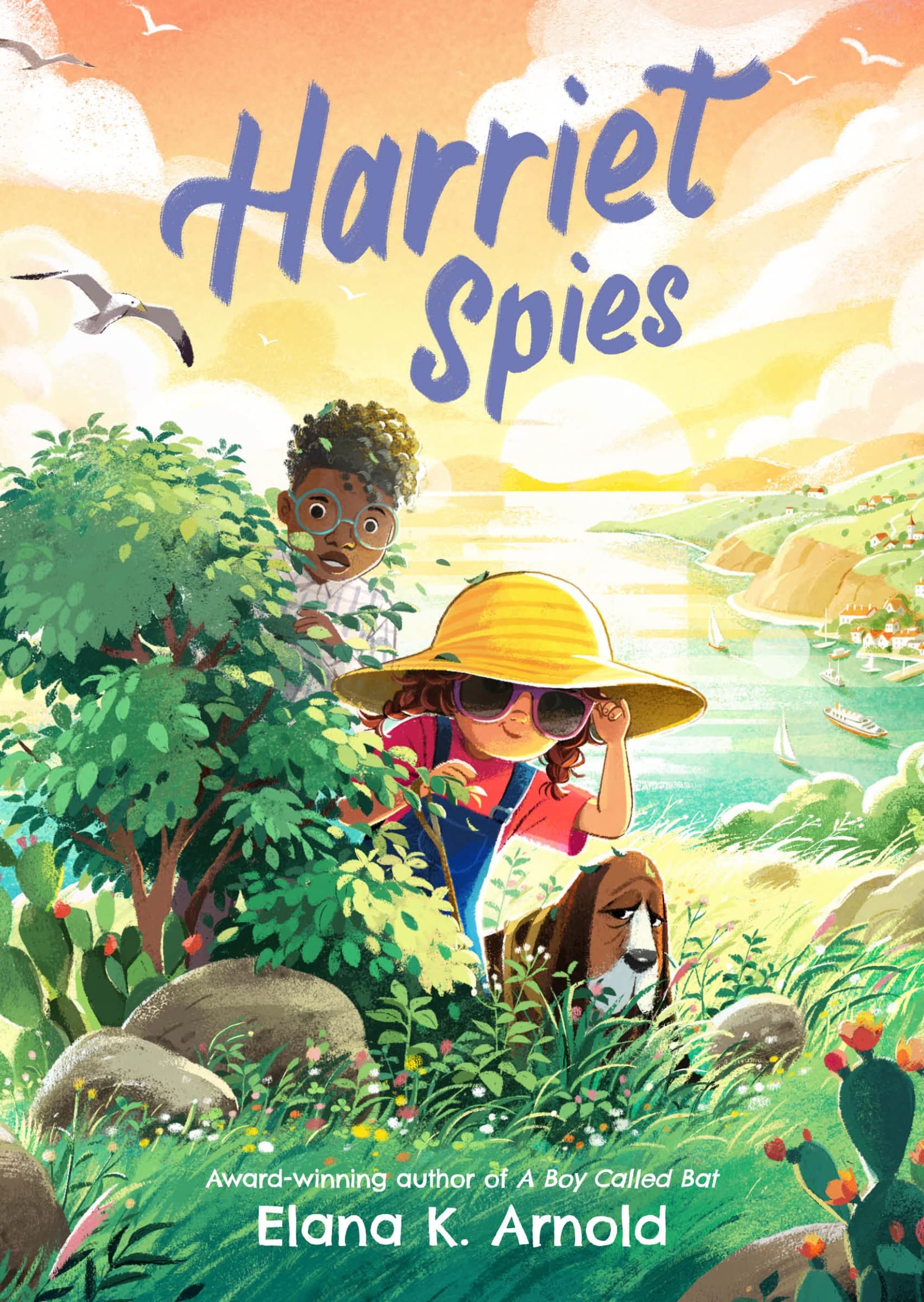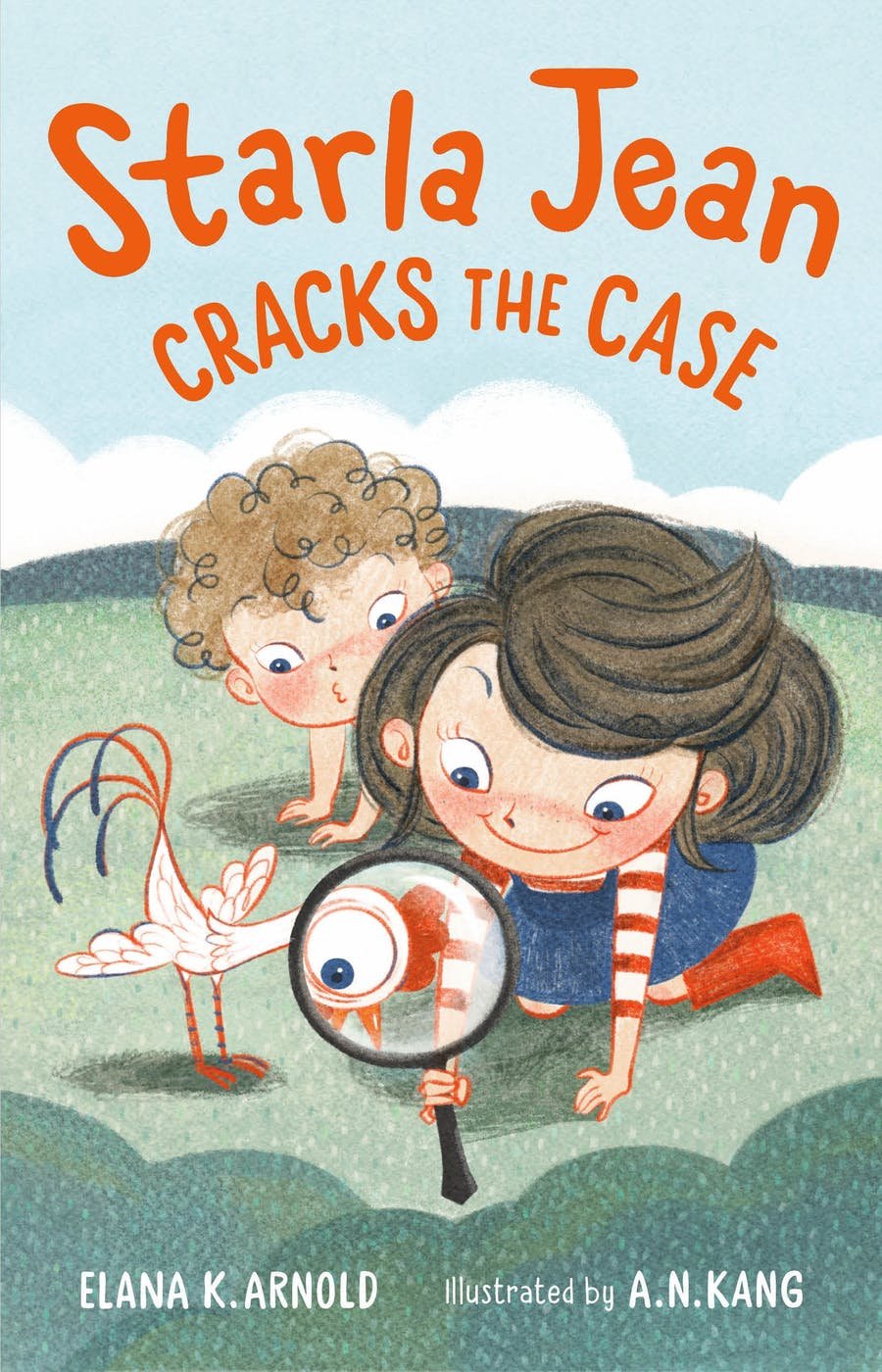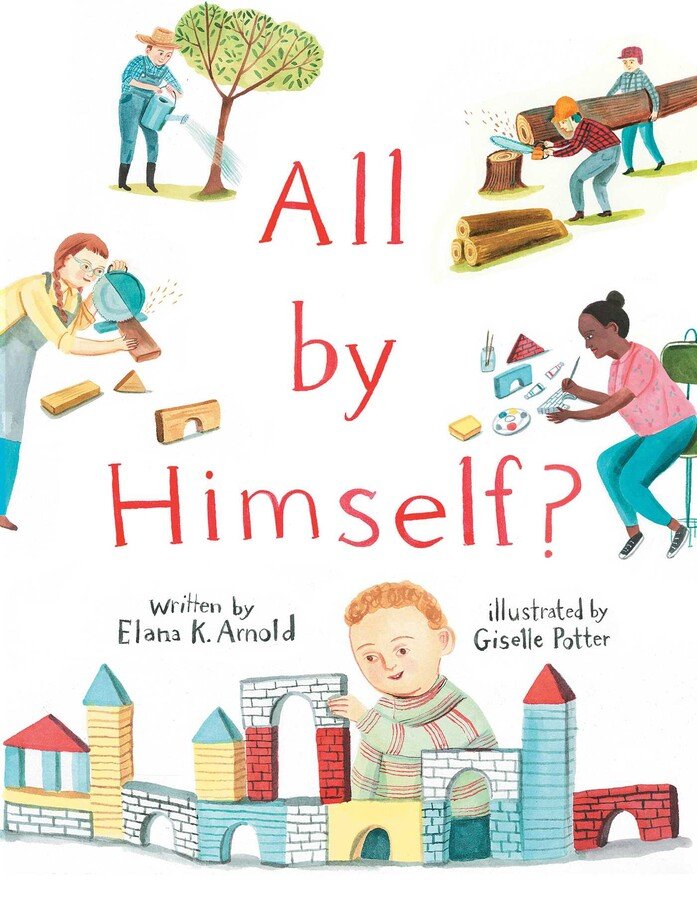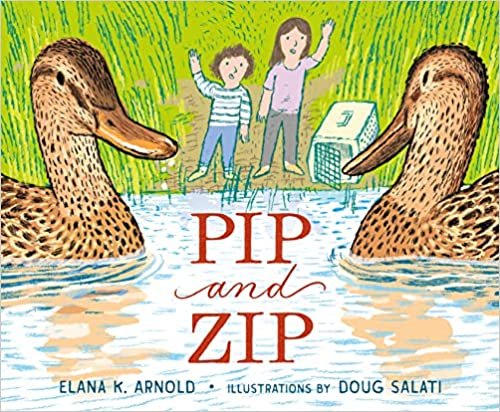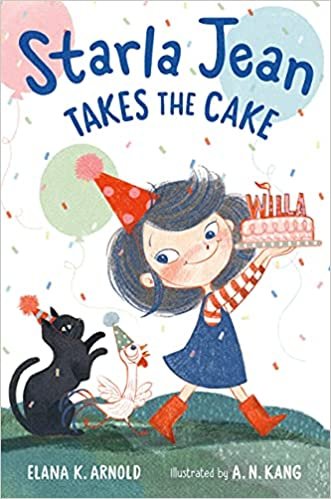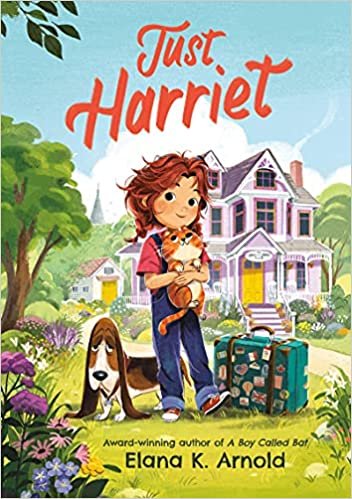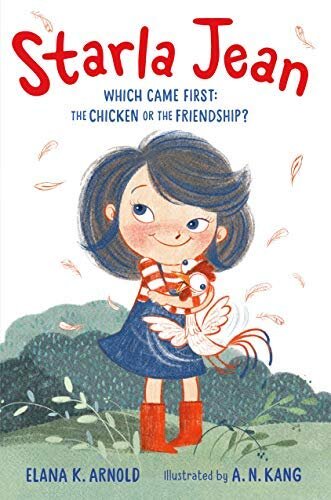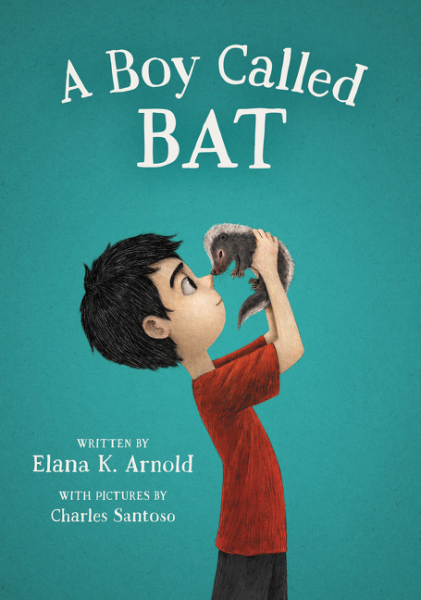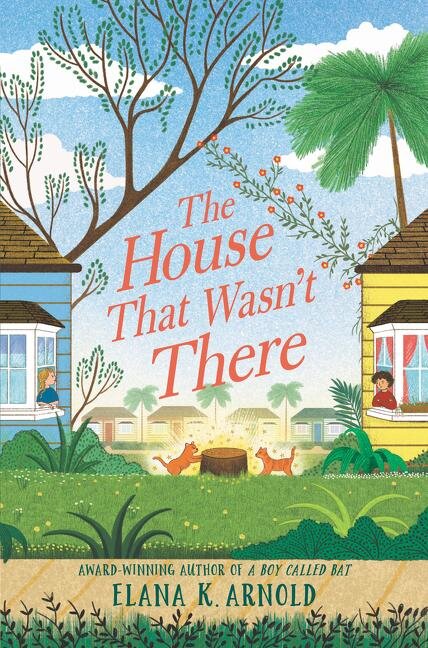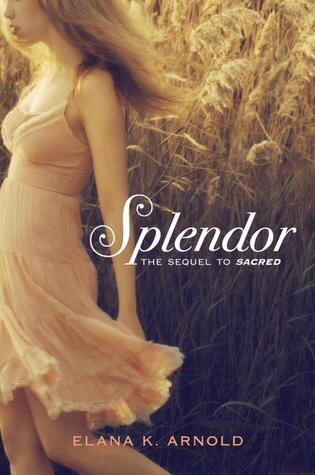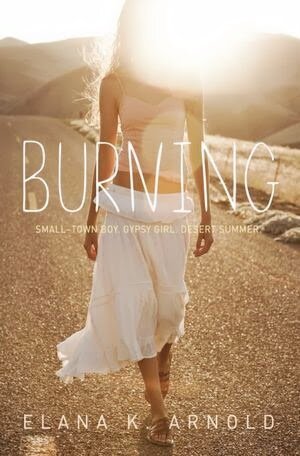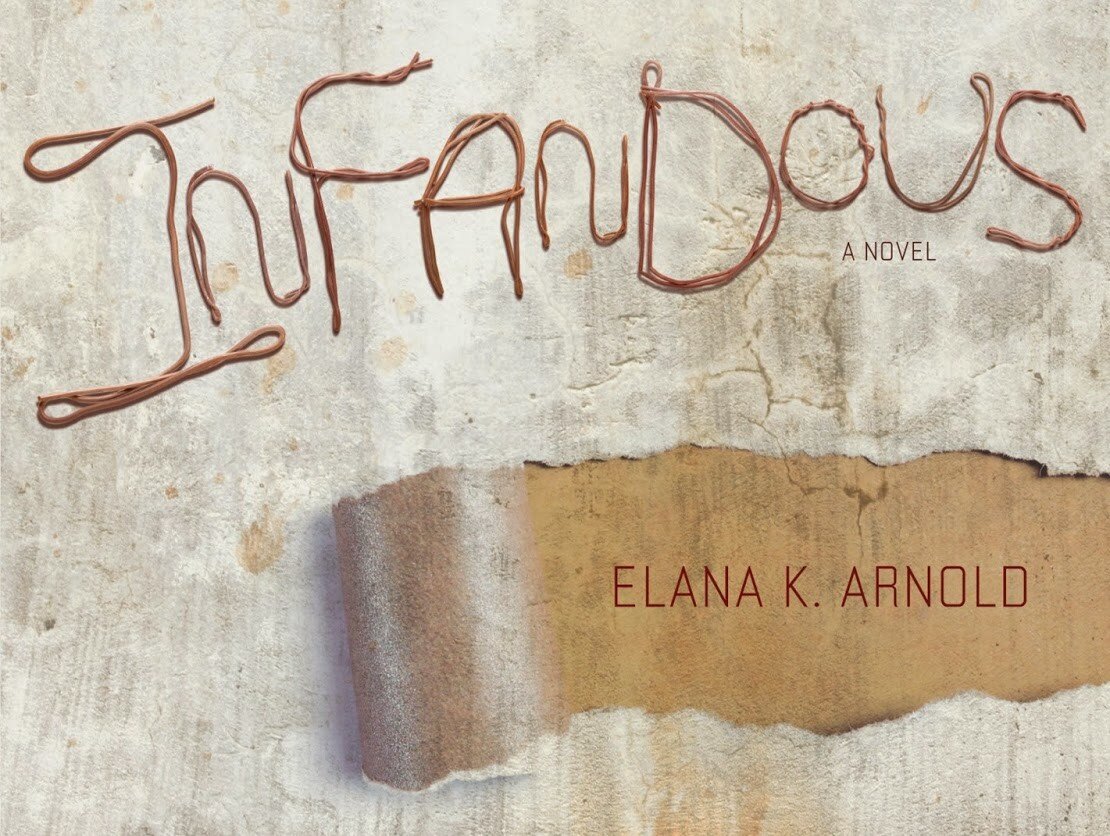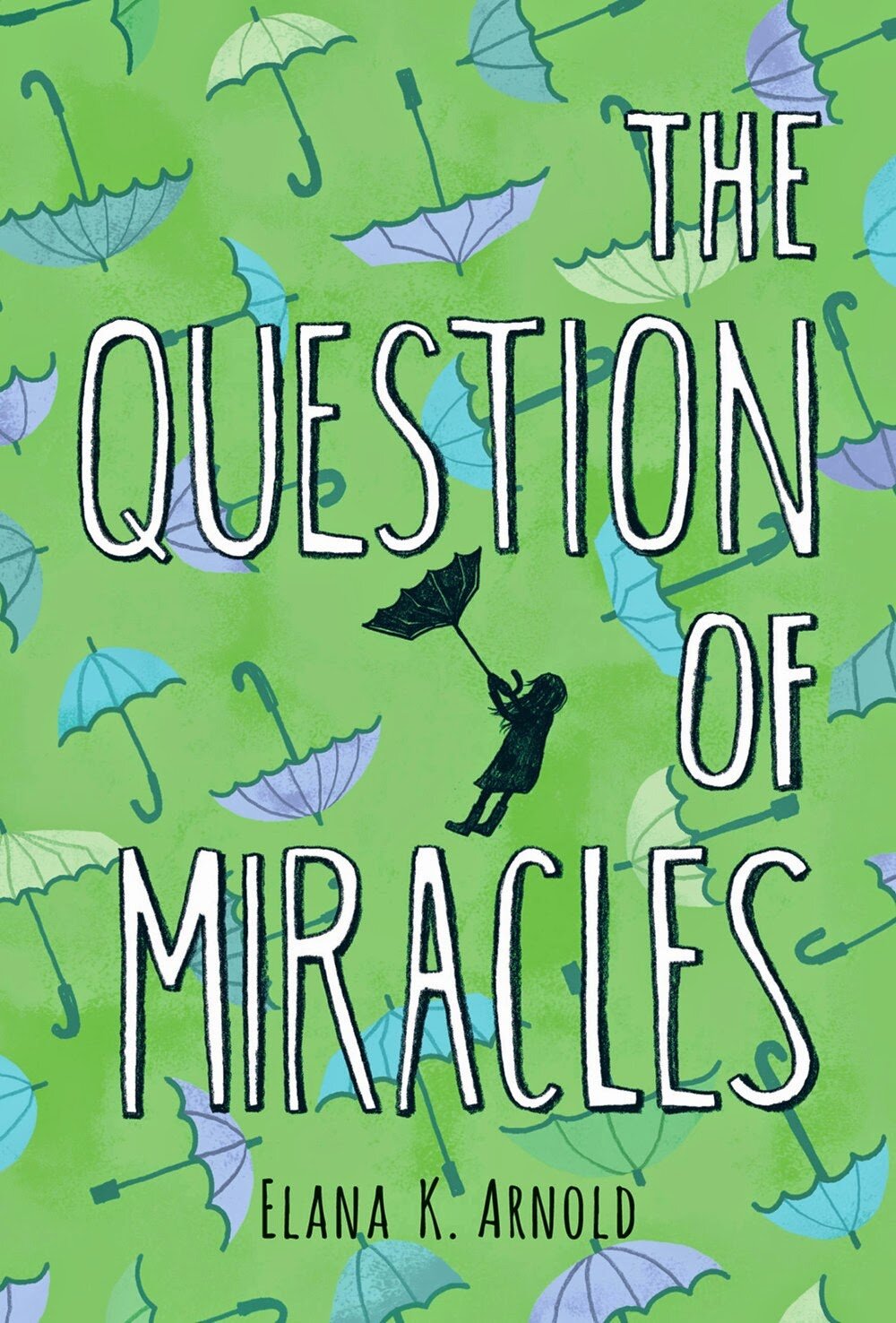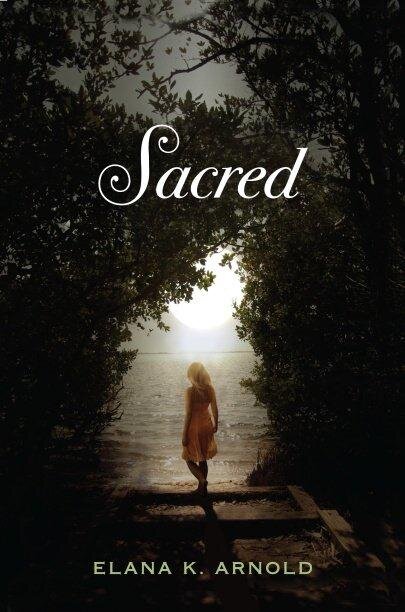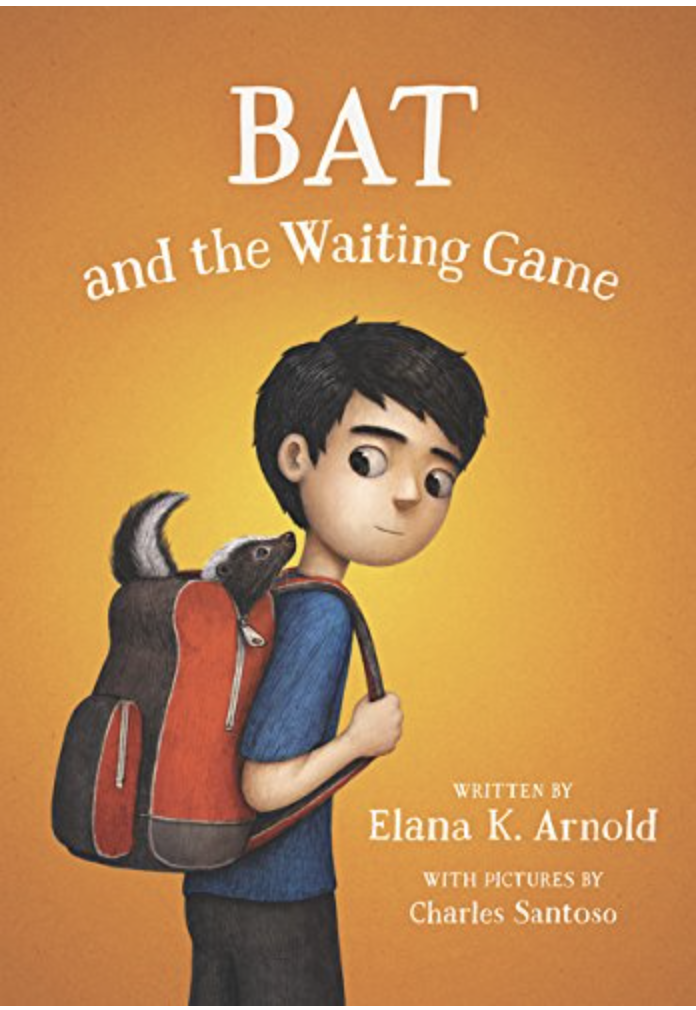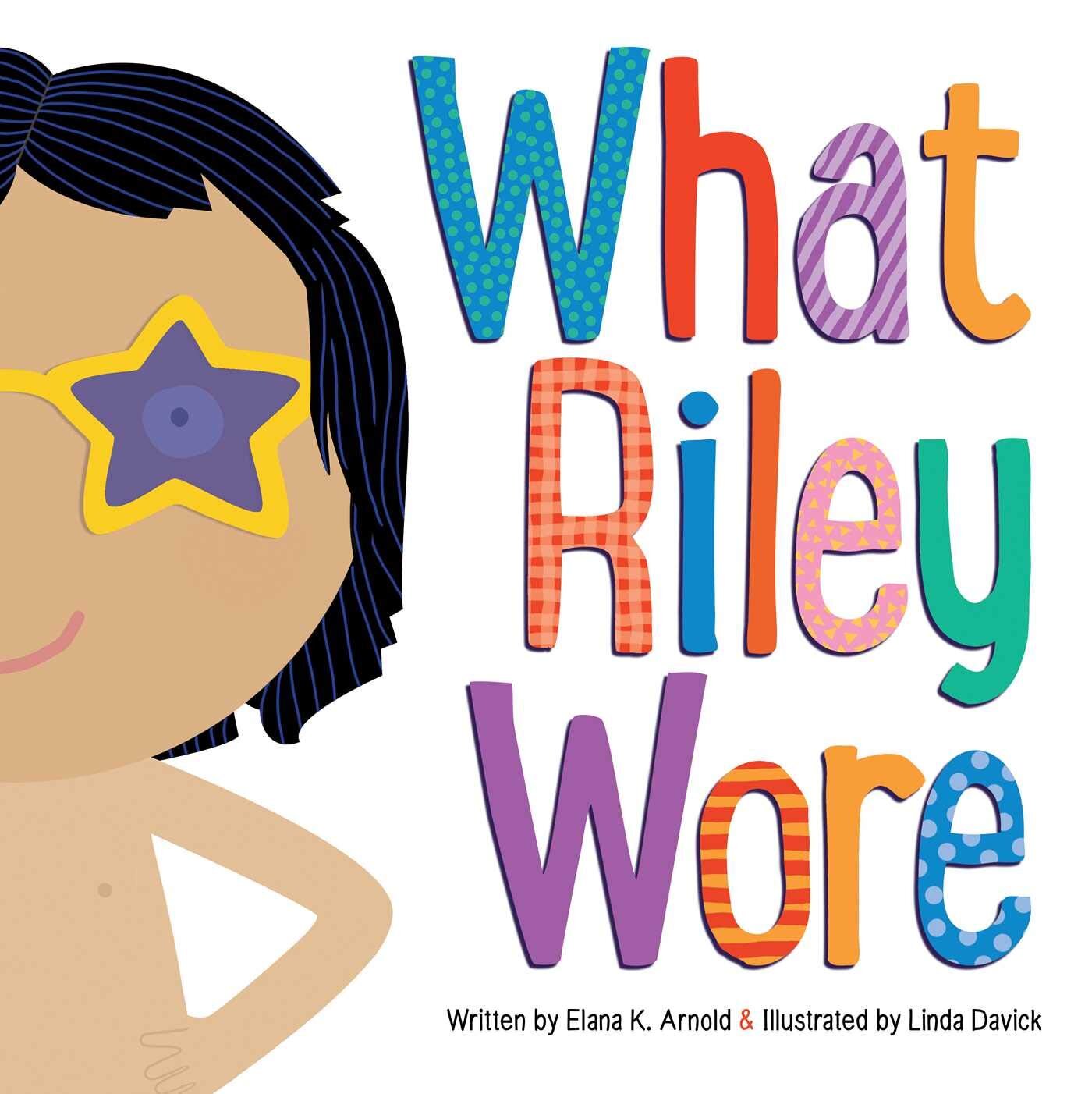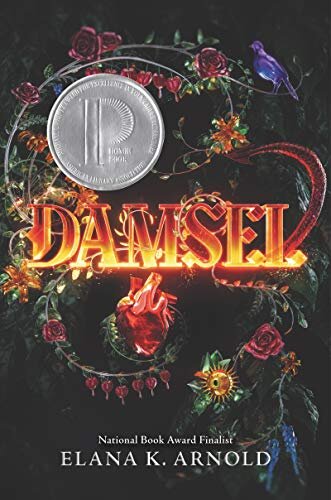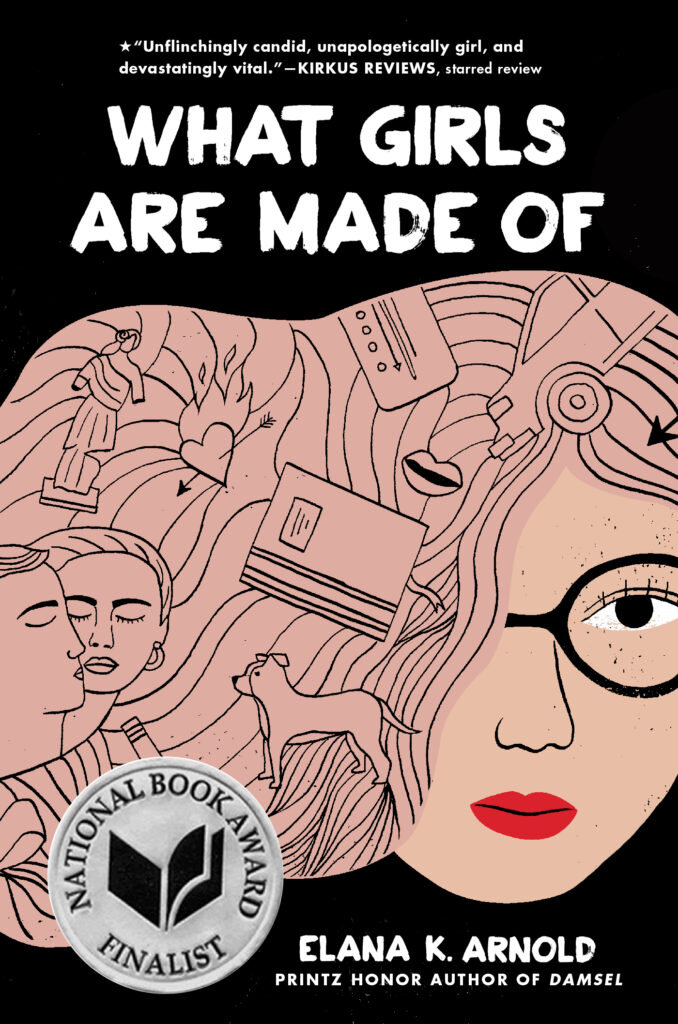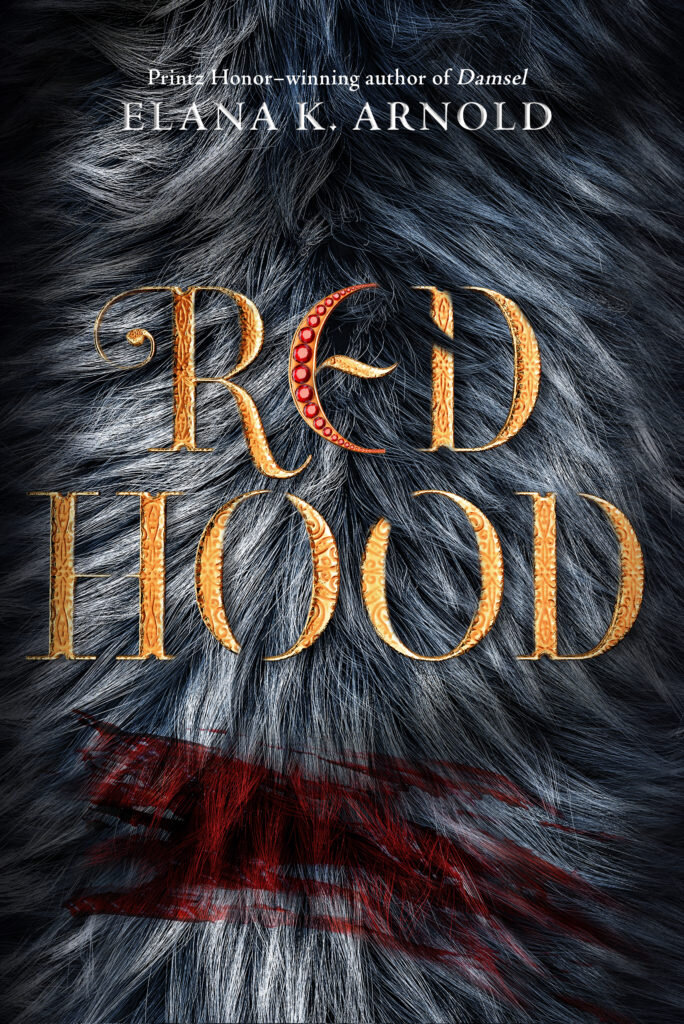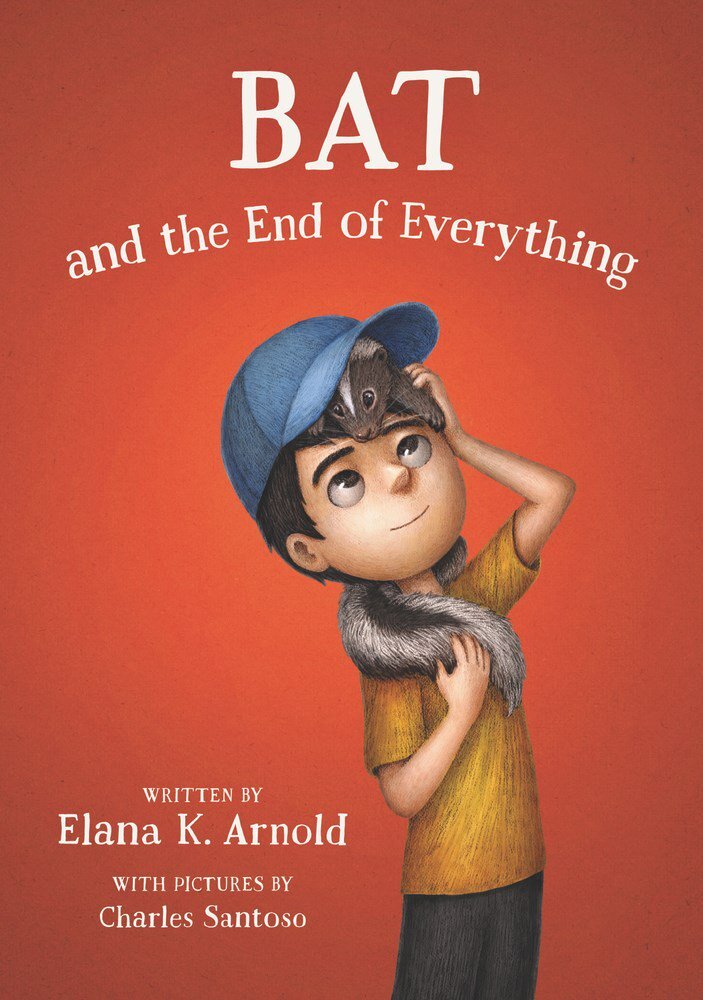Elana K. Arnold
Elana K. Arnold is the author of critically acclaimed and award-winning young adult novels and children’s books, including the Printz Honor winner Damsel, the National Book Award finalist What Girls Are Made Of, and Global Read Aloud selection A Boy Called Bat and its sequels. Several of her books are Junior Library Guild selections and have appeared on many best book lists, including Rise, a catalog of feminist titles for young readers. Elana teaches in Hamline University’s MFA in Writing for Children and Young Adults program and lives in Southern California with her family and menagerie of pets.
Reviews
The Fish of Small Wishes
“Walking outdoors one day, Kiki notices a fish looking up at her from the asphalt and asking for help. She picks up it, runs home, and puts it in the bathtub. Submerged in water, the grateful fish thanks Kiki and says that it would like to grant her a small wish. Her first wish (lots of friends), her second (to be less shy), and even her third (a deep hole in her apartment building’s courtyard) are too large for this “fish of small wishes” to manage. Kiki, who has noticed that the fish is growing, begins to dig a deep pond outside. She asks kids and adults to help, and together they create a new home for the fish. Meanwhile, Kiki has made many new friends, while also overcoming her shyness. Well suited to reading aloud, this imaginative narrative was inspired by a family story about Arnold’s great-great-grandfather. The illustrations, created with gouache paints, colored pencils, inks, and collage, glow with warmth and color. While the art has a dreamlike element, the characters are neither idealized nor ethereal. Kiki is determined to save the fish, who seems embarrassed by its limited ability to grant wishes. Their down-to-earth demeanors and emotions suit this endearing picture book well.”—Booklist, Starred Review
The Blood Years
“In this historical novel set in Czernowitz, Romania, thirteen-year-old Rieke and her beautiful, headstrong older sister, Astra, live with their depressive mother and religiously observant grandfather, Opa, a jeweler and business owner. As antisemitic fervor mounts, the family is seen by those in power as being part of “the Jewish problem.” The girls are denied access to public school, Opa’s business is vandalized, and their lives and livelihood are threatened. Things go from terrible to worse as the city is occupied first by the Soviets, then by the Germans a year later. The family is forced to leave their home, and Jews from around the city are rounded up into a ghetto with no heat, electricity, or water. Rieke’s lingering cough is confirmed as tuberculosis, and she seems destined to perish until a friend of her estranged father steps in to provide financial support; horrifyingly, he rapes her in the process. The teen begins to heal, finds her voice, and strengthens her resolve, until her beloved grandfather’s murder threatens to break her spirit. Arnold’s (Red Hood, rev. 5/20) compelling and well-researched narrative is deeply personal, respectful, and redemptive; through story, she bears witness. Her depiction of Rieke’s experiences allows readers to truly feel how the horrors of war give the character many reasons to hate as well as to discover her enormous capacity to love. Front and back matter establish a connection to Arnold’s grandmother’s memories from Romania and provide photos and a reading list.”—The Horn Book, Starred Review
“Arnold’s gripping novel of sisterhood and survival amid both Soviet and Nazi occupation illuminates a little-explored part of the Holocaust in Romania, based on the life of the author’s grandmother. Growing up in Czernowitz, Rieke Teitler’s world revolves around dance lessons with her sister, Astra, and her grandfather’s watch-repair shop. But in 1939, disaster strikes three times: Rieke develops tuberculosis, Astra falls in love with a much-older man, and Romania is caught up in WWII. As Rieke struggles to survive persecution and her worsening illness, she must also find her own path between the moral polarities of her grandfather and sister. Religious Opa wants to “build this world with love” in the face of hatred. By contrast, Astra insists “Sometimes we choose between bad, and worse.” Arnold gives the characters and moral dilemmas breadth and depth. Astra’s selfishness is sometimes pragmatic and life-affirming; her much-older husband is a philanderer and also a life-saving doctor. Later, a smuggler sexually abuses Rieke—but also gives her food that allows her family to survive. The truth is difficult, but as one character says, “knowing is better than not knowing.” Rieke must learn to make choices and maintain her ability to love. The complex setting is another truth, expertly revealed. Arnold represents the full cultural complexity of Czernowitz, which has belonged to the Austro-Hungarian Empire, Romania, and modern Ukraine. A historical afterword includes photographs of Rieke and Astra’s real-life counterparts.”—School Library Journal, Starred Review
“In this searing historical novel set in 1939–1945 Romanian Czernowitz, Arnold (Red Hood) presents a deeply personal telling based on her grandmother’s experience living through the Holocaust. After her philandering father abandons the family, Jewish 13-year-old Frederieke Teitler, her mercurial older sister Astra, and their depressed and physically weak mother must rely on Reike’s fiercely kind maternal grandfather Opa, who is a jeweler, to survive. Opa has always acted as her stalwart guardian. But the approach of brewing unrest from neighboring Poland toward Czernowitz—long considered a safe haven for Jews—means that Reike must confront the idea that Opa may not be able to protect her from everything. As war breaks out throughout Europe, Reike struggles to manage relationships with her family and wonders what she’ll have to face to find peace. Arnold confronts tough subjects, including genocide, hunger, rape, and suicide, via unflinching depictions of war and compassionate renderings of intense familial drama. Even amid these somber topics, the author conveys hope and resilience through Reike’s persevering personality and her vulnerable relationships with Astra and Opa. Includes an author’s note, a history of Czernowitz, b&w archival photographs, and a reading list.”—Publishers Weekly, Starred Review
“There are millions of Holocaust stories. This is one you haven’t heard yet. Acclaimed author Arnold leaves behind her metaphor-laden fantastical fare to tell the fictional tale of Frederieke Teitler, a Jewish girl whose life was inspired by that of the author’s grandmother Frieda Teitler during the Holocaust in then-Romanian Czernowitz, where nearly 40% of the population was Jewish. Painstakingly researched (the extensive backmatter details the blend of scholarship and family history) and sometimes painful to read, this book is many things: an examination of love and duty, a revelatory account of a Holocaust experience many won’t know, and a wrenching coming-of-age story. Rieke experiences hunger, illness, rape, and the loss of all she has known, yet somehow holds on to hope and love. The small and sometimes terrible complexities of familial drama play out against the vastness of the Holocaust. Rieke’s mother pines for her unfaithful husband; Astra, Rieke’s older sister, is the axis around which all things must turn, and someone Rieke adores beyond reason despite her chronic, careless malice, belied by sudden gestures of immense love. The rock amid this tumult is Opa, her grandfather, whose steady kindness and honor remain, even as the world around them descends into hate and violence. A moving glimpse into a past that is an all-too-possible vision of our future. (foreword, timeline, author’s note, archival materials, reading list)”—Kirkus Reviews, Starred Review
Harriet Spies
“In this follow-up to Just Harriet (2022), the protagonist is spending the summer with her grandmother when she finds herself at the center of a mystery. Harriet is staying with Nanu on Marble Island while her father works and her pregnant mother is on bed rest. There is a lot to do at Nanu’s Bric-a-Brac bed-and-breakfast, but the best things are all the guests, especially regulars like the Captain, an ornithologist who researches loggerhead shrikes. She has the most pockets and the coolest tools of any grown-up Harriet has ever seen. Unfortunately, the Captain’s prized binoculars go missing the same day Harriet has her yard sale. Even more unfortunately, the Captain and Nanu seem to think Harriet may have something to do with their disappearance—and not without reason. Harriet may have had some issues with honesty in the past. As she sets out to find the binoculars and clear her name, Harriet befriends local boy Clarence, who agrees to help her on her quest. Clarence ultimately plays the role of Harriet’s moral compass as she learns what it means to be honest and a good friend. Her voice and internal struggle with truth-telling are genuine even if the messaging is heavy-handed. The adult characters also feel a bit flat, and the Marble Island setting is rather bland. Sweet spot art breaks up the text. Harriet reads White; Clarence and his family are Black. A quiet read for those seeking a gentle slice-of-life story.”—Kirkus Reviews
Starla Jean Cracks the Case
“‘There is one thing you need to know if you’re going to walk a chicken,’ writes young Starla Jean. ‘You can go on a walk with a chicken . . . but you can’t take a chicken on a walk.’ And indeed, as Starla Jean chases after her pet chicken, Opal Egg, it proves the truth of that insight, darting off and ultimately finding several small, mysterious, colored beads that turn out to be from a lost necklace belonging to Dani, an elderly treasure hunter. But where is the shiny white opal that went with the beads? Leave it to Opal Egg to pull off one more pullet surprise by pulling out the missing stone from Dani’s mop of shiny white hair! Being a “sister expert” as well as a “chicken expert,” Starla Jean sees a bubble party as the obvious next step, and Kang gathers the entire cast into a final full-spread scene to fill the air with soap bubbles. An amicable exploit for emergent chapter book readers who are fans of the vivacious hen and her equally lively keeper.”—Booklist
“Starla Jean and her bug-eyed side-chicken, Opal Egg, are back for a third neighborhood adventure…and this time it’s a mystery! Starla Jean, expert on all things chicken-related, embarks on a well-meaning but rather erratic walk with her beloved pet and her bubble-obsessed little sister, Willa. Along the way, they uncover a handful of mysterious beads. More neighbors join the walk until the case is finally cracked, just in time for a bubble-filled celebration. Starla Jean’s indelible voice continues to be the strength of this series, especially evident in the polished comedic timing of the dialogue. In Chapter 1, Starla Jean introduces each of her neighbors in the same order she encounters them in the following three chapters. This structure, along with the large font and plentiful white space around and between words, provides support for developing readers transitioning to early chapter books . . . The playful illustrations feature soft colors and humorous facial expressions. Even readers unfamiliar with Starla Jean’s world will take to this winsome tale. Starla Jean, Willa, and most characters are depicted with pale skin; neighbor Nate is brown-skinned. An egg-cellent addition to this humorous series for readers en route to early chapter books.”—Kirkus Reviews
“Back for a third adventure (Starla Jean, rev. 3/21; Starla Jean Takes the Cake), our -heroine and her chicken, Opal Egg, have a mystery to solve. Starla Jean (who now considers herself a “chicken-everything expert”) summarizes key points from the -previous titles as she shares her chicken knowledge along with topics of expertise found among her family and neighbors (e.g., “Mr. Marcos, whose house is near the park, is an expert gardener. His dog, Dean, is great at digging holes”). By -chapter two, the plot moves forward as Starla Jean, with baby sister Willa in a wagon, -unsuccessfully tries to leash Opal Egg for a walk, but Opal Egg insists on walking untethered. The chicken leads them to a mystery when she unearths a yellow bead while looking for snails. As with her chicken-care tactics, Starla Jean’s attempts to solve the mystery include a litany of tangents, wacky observations, and wrong turns, -allowing both readers and Opal Egg to stay one step ahead. With each newly discovered clue, a neighbor joins the pursuit, and eventually this merry crew finds a rainbow of lost beads and their original owner, too. Colorful spot art on every page adds information and comedy to the narrative and, along with Starla Jean’s penchant for lists and repetition, helps keep the story accessible and engaging for new readers.”— The Horn Book Magazine
“Starla Jean and her chicken Opal Egg (who she walks on a leash and treats somewhat like a pet dog) explains that every person is an expert at something. Starla Jean considers herself a chicken expert and shares that her sister loves bubbles, whether it’s a bubble bath or blowing them. Her neighbor Dani likes to go looking for buried treasures in the dirt. While on a walk with her sister Willa and Opal Egg, Starla Jean finds a bead and begins to wonder who it belongs to. Finding the bead’s owner becomes an entertaining mystery with a satisfying conclusion. This is a great introductory series for children who are beginning to read on their own. Main characters are cued as white. A third entry in this pleasant series that showcases the daily adventures of the ever-curious Starla Jean, with quirky humor, large font, and delightful illustrations.”—School Library Journal
All By Himself?
“The eponymous “himself,” a white presenting youth who proudly builds an elaborate block structure, doesn’t appear for the first half of this cumulative picture book. Instead, Arnold’s (Just Harriet) “The House that Jack Built”–tinged narrative and Potter’s (Sister Wish) watercolor and ink art—which has a stylized geometry and playful directness reminiscent of Grant Wood—introduce the people, portrayed with various skin tones, who make the child’s triumphant moment possible. First is the tree farmer who planted a seedling “years ago/ before the child was even born,” followed by an arborist and woodcutter; then it’s on to the studios of the woodcarver and artist who fashion the blocks, the truck driver who delivers them to the shop where the shopkeeper puts them up for display, and, finally, the grandmother who buys them. “Because of all this,/ today/ the child built a masterpiece.// ALL BY HIMSELF!” Lightly underscoring the message, the story then shifts into reverse, reviewing the work involved, and ending not with the farmer but rather, “of course.../ the tree itself.” With a measured tone and quiet beauty, the creators celebrate people’s interdependency, indebtedness to nature, and the importance of recognizing one’s support structures.”—Publishers Weekly
Pip and Zip
“In a picture book set when “we all had to stay home for the whole long springtime,” a white-presenting family on a walk finds two eggs in the shallows of a park lake. The family’s brown-skinned neighbor, Ted, who has the distinct knowledge of a wildlife rehabilitation specialist, identifies them as duck eggs and lends the family an incubator. Loosely worked, digitally colored pencil vignettes by Salati (Hot Dog) show the family’s two children staying close to the incubating eggs on their kitchen table—doing homework, making art, celebrating a birthday—during the 28–day wait, which Arnold (An Ordinary Day) situates within the context of a planet in a moment of pause (“all across the neighborhood/ all around the world”). When both eggs hatch, the family is elated, and Ted is, too: “In all my years working with birds, this is a first.” And as the ducklings mature (the artist captures with care the patterns of their feathers, the graceful curves of their bodies, and their delight in each other’s company), the story cherishes this small triumph amid tension and despair, ending on an upswing that parallels their release with a second venturing-out ‘into the great blue world.’”—Publishers Weekly, Starred Review
“One spring, when schools and workplaces are closed, two sisters and their parents take a walk. At the lake, they discover two abandoned duck eggs. Mom carries them home in her coat pockets. Ted, the bird expert next door, lends them an incubator, and the girls wait 28 days for the eggs to hatch. Ted takes over the care of hatchlings Pip and Zip, but the children still watch the growing birds as they learn to waddle and to swim. When the ducklings are ready to fly, the family accompanies them to the lake to wave goodbye. An author’s note explains that the story is based on a personal experience during the COVID-related “Safer at Home” period in 2020. There are also subtle references to the pandemic within the story. The pleasing, first-person text focuses on the children’s fascination with the eggs and the ducklings. Digitally colored pencil
drawings skillfully illustrate the story, and the later scenes on the lake are particularly fine. This rewarding picture book reads aloud well and could lead to worthwhile discussions.” —Booklist
“Two eggs at the edge of a lake are found by a family (two adults, two children, all light-skinned) on a masked, socially distanced walk during the pandemic shutdown. Their neighbor Ted, who has brown skin, explains that this can sometimes happen with ducks with their very first clutch of eggs . . . The pair grow under Ted’s care, and by the time Pip and Zip are ready to be released into the wild, the world may have begun to come out of its shell as well. Emergence from a quiet, sheltered, strange time to the thrill of grown ducklings flying with others of their kind is a reminder that life contains moments of wonder. Friendly, cartoon, full-color illustrations offer the right amount of detail for the story, from a montage of the family waiting by the incubator to the flock of ducks in the sunshine. An author’s note describes the true story of the duck eggs; backmatter explains what readers should do if they find a duck egg. Gently engaging and cheerful.”—Kirkus Reviews
Starla Jean Takes the Cake
“Starla Jean is the kind of enduring character that readers will turn to time and time again . . .The delightful second in an excellent series of early reader chapter books. Children will love solving problems and chuckling alongside Starla Jean.” —School Library Journal, Starred Review
Just Harriet
“Mixing humor with drama, Arnold (Starla Jean) once again shows her clear understanding of children’s emotions and behaviors as she traces presumed-white Harriet’s changing heart and views. With its short chapters, lively occasional illustrations by Ho (Eyes That Kiss in the Corners), and energetic feuds between Harriet’s cat and her grandmother’s beloved basset hound, this series opener is a winner.” —Publishers Weekly, Starred Review
“A flawed but intriguing heroine from the start, Harriet’s stubbornness, hot temper, and habit of lying will undoubtedly draw comparisons to the titular character in Beverly Cleary’s Ramona series. Cranky, crotchety kids will find a kindred spirit in this young girl who longs to be understood and to understand the puzzling world of adults. Meanwhile, the mystery of the antique key yields a solution better than a secret garden . . . An engaging series opener about the power of truth to moor and free even the sulkiest of souls.” —Kirkus Reviews, Starred Review
The House that Wasn’t There
Named one of Kirkus Reviews’ “Best Middle-Grade Fiction Books of 2021”
"Told through alternating perspectives that offer clearly rendered details, this compassionate novel gives a unique twist to familiar situations—feeling lonely, adjusting to new environments, forging new bonds—while inviting readers to open their imaginations to all sorts of wonderful possibilities." —Publishers Weekly, Starred Review
“A low-key marvel rich in surprises, small fuzzy creatures, and friendships old and new." —Kirkus Reviews, Starred Review
"Arnold combines the weird with the warm in this domestic fantasy, bringing realism to the kids’ struggles with both family and identity even as they deal with some very unusual circumstances." —Bulletin for the Center for Children's Books
Starla Jean
"Plucky Starla Jean captures an errant chicken along with the hearts of early readers in the first volume of a delightfully illustrated chapter book series." —Shelf Awareness
"This series starter features Starla Jean’s exuberant first-person narration, liberally punctuated with dialogue with her family and neighbors. Readers transitioning to early chapter books will appreciate the four short chapters and the limited amount of text per page, wide margins, and ample space between lines of text. Mercy Watson fans will flock to this whimsical new series for developing readers."—Kirkus Reviews, Starred Review
"Generous white space keeps the momentum rising as running text—a single thought, or sometimes even one word, including the chicken’s initial squawk—stretches across spreads." —Publishers Weekly
An Ordinary Day
"Powerfully demonstrates how small but monumental events can connect and change the world." —Kirkus Reviews
"With enormous sensitivity, the creators weave together beginnings, endings, joy and sadness, and a metaphysical sense of the universe’s continuity." — Publishers Weekly, Starred Review
"Many will be moved by the artful book design and a thoughtfully simple text that delineate an extraordinary day." — Booklist, Starred Review
Red Hood
"A disturbing but ultimately empowering, and thoroughly immersive, feminist fairy tale."— The Horn Book
". . . this is what fairy tales were and should be again, bloody and dark and richly compelling." — Locus
"A fantastic novel in the #MeToo era, empowering women to share their stories by reaching out, speaking up, and demanding a change." —School Library Journal, Starred Review
"A timely and unabashedly feminist twist on a classic fairy tale." —Kirkus Reviews
"Read, shed your pelt, and be transformed—for blades are being sharpened." —Booklist, Starred Review
"On Sunday, a kid at the park asks, 'Are you a girl or a boy?' Riley, sporting 'the world’s best tutu, a crazy monster shirt...and a hat with dinosaur spikes,' doesn’t miss a beat: 'Today I’m a firefighter. And a dancer. And a monster hunter. And a pilot. And a dinosaur.' The other child’s response says it all: 'Want to play?'" —The Horn Book
What Riley Wore
"Arnold playfully addresses identity, and Riley's recurring thoughts about how to make friends should resonate with a wide array of kids." —Booklist
"By connecting Riley’s gender nonconforming to the costumed roleplaying that most kids engage in, the creators take this timely subject matter into a refreshing realm: normalcy." —Publishers Weekly
Damsel
Printz Honor Book & California Book Award Finalist
“I won’t be surprised if this book swipes all the awards this year." —Kirkus Reviews
"Lyrical, brutal, and unapologetically feminist." —The Horn Book
"Readers who like the grimmest of the Grimms' stories will find their appetite for dark tales satiated here." —Bulletin for the Center for Children's Books
"This brutal, devastating, powerful novel won't soon be forgotten." —Booklist, Starred Review
What Girls are Made Of
National Book Award & California Book Award Finalist
"Unflinchingly candid, unapologetically girl, and devastatingly vital." —Kirkus Reviews, Starred Review
"Self-love and fulfillment can be found through helping others." —School Library Journal
"Smart, true, and devastating, this is brutally, necessarily forthcoming about the crags of teen courtship." —Booklist
"It’s a book that tells the truth about the world as-is, versus the world as we would like it to be." —Kirkus Reviews
Bat and the Waiting Game
"From his aversion to crowds to his struggles with friendship, the ever-lovable Bat is sure to resonate with readers of all ages." —Booklist
"A gentle tale of shared similarities rather than differences that divide and a fine read-aloud with a useful but not didactic message of acceptance." —Kirkus Reviews
A Boy Called Bat
2018 Global Read Aloud Book
"Comfortably familiar and quietly groundbreaking." —Kirkus Reviews
Infandous
"A coming-of-age story consciously reminiscent of Lolita, this multifaceted portrayal of family bonds surprises with its nuanced and sometimes-searing emotional gravity." —Kirkus Reviews, Starred Review
"Interspersed with stories from mythology and classic fairy tales, Arnold's novel feels authentic; teens will relate to Sephora's brutally honest, well-rendered voice." —The Horn Book


